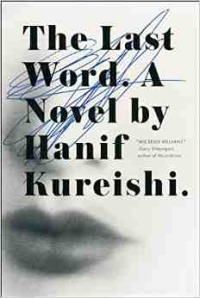Taking Pity by David Mark
 Friday, July 31, 2015 at 10:45AM
Friday, July 31, 2015 at 10:45AM 
Published by Blue Rider Press on July 7, 2015
As series fans know, DS Aector McAvoy has been through hell. McAvoy is living apart from his wife and daughter to assure their protection from the criminal gang known as the Headhunters, which is fighting a turf war in Hull. McAvoy should be on sick leave, perhaps for the rest of his life, but politicians with clout want him (with the able assistance of his boss, DSI Trish Pharaoh) to investigate the murders of four family members that occurred fifty years earlier. The alleged murderer -- Peter "Daft Pete" Coles -- is finally being released from the mental health institution to which he was committed and the Home Office wants to make sure the case was investigated properly and the right man accused. Or (more likely) they want McAvoy to say that too much time has gone by to secure a conviction so that the case can quietly disappear.
Daft Pete, found near the bodies cradling a shotgun and muttering something about how he didn't mean it, is the obvious suspect. Of course, the reader knows that makes him the least likely culprit.
Meanwhile, DCI Colin Ray takes a break from drinking his way through his own misery to help another series regular, DC Helen Tremberg, who is recovering from injuries sustained when McAvoy's house was bombed in an earlier novel. Like McAvoy and apparently everyone in Hull, Tremberg is having her own problems with the Headhunters. She can't reveal that problem to Ray but she would like to see him put the criminal organization out of business.
Taking Pity is highly dependent on events that occurred in earlier novels. It can be read as a stand-alone, but some of the characters' actions and interactions might be puzzling to readers who are unfamiliar with the first three books in the series. Taking Pity only partially resolves plot threads that have been building throughout the series, leaving room for additional character development in novels to come.
Characters are the strength of these novels but David Mark is no slouch at plotting. The story is complex, believable, and reasonably surprising. This one is darker than the first three and McAvoy is less the center of attention, but Mark's ability to juggle the different plot threads and to bring them to a satisfying conclusion is impressive. British crime novels are always a pleasant departure from American thrillers, largely because so many American authors spend more time describing guns than characters. This is turning into one of my favorite series.
RECOMMENDED
 TChris |
TChris |  Post a Comment |
Post a Comment |  David Mark,
David Mark,  Great Britain in
Great Britain in  Thriller
Thriller 


